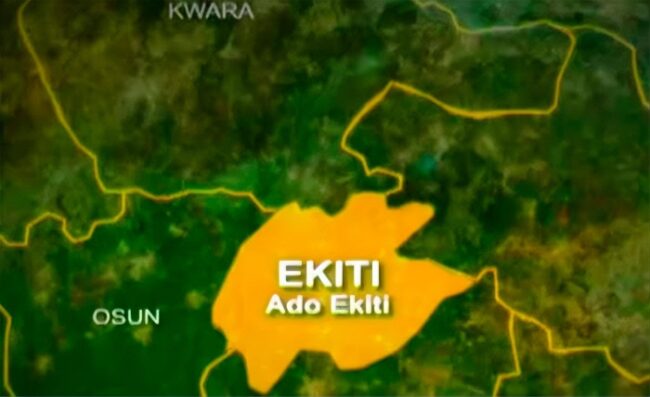Ekiti State Government has vowed to sustain intervention efforts taken to tackle the menace of out-of-school children in the State and effectively control the likelihood of pupils dropping out of school.
The State Commissioner for Education, Dr. Bimpe Aderiye who made this known in Ado Ekiti reiterated the commitment of Governor Oyebanji’s administration to ensuring that all school-age children are in school and those who had dropped out will be integrated back to school.
Disclosing that a work plan was developed at the two-day regional stakeholders’ meeting organized by the United Nations Children’s Fund (UNICEF) in Ibadan, Oyo State, on Out-of-School Children for Ekiti, Lagos, Ondo, Osun, Ogun and Oyo States, Aderiye said that the work plan would be further fine-tuned within a week for implementation to advance the achievements of the state in the sector.
Aderiye who stressed the resolve of the State Government to collaborate with Development partners including donor country governments, World Bank and other Regional Development banks, United Nations agencies as well as individuals and corporate organizations, said that the target is to provide opportunity and ensure that all and sundry acquire proper education regardless of their background or circumstances.
According to her, Government’s huge investment in education has brought tremendous progress in the efforts to reduce the number of out-of-school children in the State.
The Commissioner however assured that the State Government would not relent efforts and would continue to collaborate with interested development partners not only to sustain the level of achievement so far but also improve on it and ensure there is no relapse.
The commissioner said the state government intends to intensify on stakeholders’ advocacy and support network to help address early warning systems for adolescents at the risk of dropping out of school and leading factors causing drop out of school.
She highlighted the government’s interventions in the education sector to include a free and compulsory education policy up to Senior Secondary School level, payment of running grants to all Primary and Secondary Schools and Technical Colleges, payment of WAEC fees and administrative charges for students in public schools and purchase of Joint Admissions and Matriculation Board (JAMB) forms for eligible students.
Aderiye said, “Apart from recruiting both Primary and Secondary Schools teachers, the State Government, in partnership with UNICEF and TY Danjuma trained teachers in the State on digital skills and remote learning. Old buildings in schools were renovated, toilet facilities provided while computers and interactive boards were supplied to schools to facilitate e-teaching/learning.
“List of the vulnerable and children at risk was generated and provided with the basic needs including school uniforms, school bags, books and Conditional Cash Transfer (CCT) were made to parents of the indigent students.
“The State Government has also commenced an educational scheme known as the 2nd Chance Education Scheme aimed at providing opportunities for girls who dropped out of school as a result of varied factors ranging from socio-economic factors to adolescent pregnancy etcetera. The programme is scheduled to begin in 20 centres across the state in September 2024.”
An Education specialist with UNICEF Nigeria, Babagana Aminu, had declared at the regional stakeholders meeting, that it is not that children in the Southwest region are actually not enrolling in school for formal education but it is more burdensome that significant percentage of them do not wait to complete their secondary school education let alone transit to higher level.
NIGERIAN TRIBUNE
